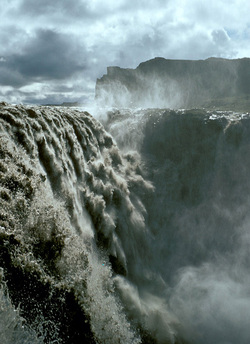
In a country which is devoid of birdsong for ten months of the year, and where the sounds of nature often come from the Earth itself, it is perhaps not surprising that Iceland’s equivalent of The Lark Ascending could be the loudest piece of music ever written.
Last week, Jón Leifs’s Hekla was broadcast as part of the Composer of the Week series, devoted, not to a single composer for once, but to a whole country – Iceland. In 1926 a tectonic shift occurred when the country hosted its first ever orchestral concert, conducted by Leifs who had been studying and working in Germany for the previous ten years. The result was a long, slow eruption of musical creativity across all genres, and the flow continues, as the four-part series showed.
Hekla depicts the 1947 eruption of the volcano of that name, which Leifs witnessed. The mountain already had a fearsome reputation stretching back to 1104 when a huge eruption led to a belief throughout Europe that Hekla was the gateway to Hell – a belief that only died out at the approach of the 20th century.
Programme presenter Donald Macleod describes Hekla - which is scored for a full orchestra with nineteen percussionists and an organ, along with a choir -as “probably the loudest piece of music ever written” and fittingly chooses it to close his survey of the music of Iceland.
Last week, Jón Leifs’s Hekla was broadcast as part of the Composer of the Week series, devoted, not to a single composer for once, but to a whole country – Iceland. In 1926 a tectonic shift occurred when the country hosted its first ever orchestral concert, conducted by Leifs who had been studying and working in Germany for the previous ten years. The result was a long, slow eruption of musical creativity across all genres, and the flow continues, as the four-part series showed.
Hekla depicts the 1947 eruption of the volcano of that name, which Leifs witnessed. The mountain already had a fearsome reputation stretching back to 1104 when a huge eruption led to a belief throughout Europe that Hekla was the gateway to Hell – a belief that only died out at the approach of the 20th century.
Programme presenter Donald Macleod describes Hekla - which is scored for a full orchestra with nineteen percussionists and an organ, along with a choir -as “probably the loudest piece of music ever written” and fittingly chooses it to close his survey of the music of Iceland.
Characteristically, Leifs thought little about the practicalities of his piece, and called for an array of instruments that were either unobtainable – massive church bells for instance – or unplayable, such as rapidly repeating shotguns. Rocks that ring with musical pitches were found, and ships' chains and steel tubing were scrounged from the Reykjavik dockyards. Whether or not the exact sounds in the composer’s head made it to the concert hall, the effect at its 1964 premiere would have resonated throughout the musical scene in Iceland, liberating a surge of edge-of-the-world originality which has yet to cease.
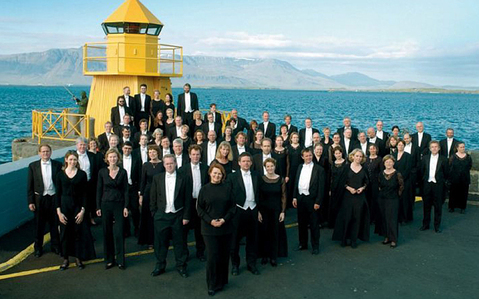
Last week an earthquake swarm occurred in the vicinity of the Bárðarbunga volcano, with over 1600 quakes recorded in 48 hours. The following day the Iceland Symphony Orchestra made its first visit to the Proms to play Leifs’s Geysir together with Haukur Tómasson’s (b.1960) Magma. In conversation with the BBC’s Tom Service, members of the orchestra spoke of the anticipation of earth-moving events that currently pervades Iceland; and as I write a small eruption is under way, with official warnings of bigger things to come.
it's some kind of energy that you get from experiencing sublime beauty in nature
The BBC have just uploaded a audio clip of this, the UK premiere of Magma. Tómasson explained to Tom Service that, while Magma could be heard as a direct evocation of the volcanic forces at work in Iceland, the experience of nature in general is the main inspiration. "I've done many pieces inspired by nature, but for me it's indirect - it's some kind of energy that you get from experiencing sublime beauty in nature". Both this and the equally original-sounding Geysir, the latter albeit from the previous generation, were performed with the vim of an ensemble excited to bring the sound-world of their countrymen to London. Programmed with the Schumann Piano Concerto and Beethoven's Fifth the evening promised to resound with the energy of elemental forces. I got the feeling, admittedly listening on radio, that the Icelanders had opted for safe, rather than fiery readings of these two mountainous works. For fear of disturbing the trolls, perhaps.
Brief flute solos by Tómasson's composition teacher Atli Heimir Sveinsson (b. 1938) punctuate one of Donald Macleod's programmes, in which he explores the span of Icelandic music from the ancients to the idea-volcano that is Björk. Sveinsson's Twenty-one Sounding Minutes are one-minute tributes to the sounds, natural, human, spiritual, and imagined, that circumscribe human experience. They include Sounds of Birds, Sounds of Fish, Sounds of Love, International Sounds and so on. From this most succinct survey of nature and human nature, the programme selects Sounds of Men, Women, Rain, and finally, Sounds of Sound.
The pity is, from the original five-part series broadcast last year these repeats do not include episode two, featuring the septuagenarian Sveinsson as Icelandic music's wickedly mischievous provocateur-in-chief. A composer able and willing to compose in almost any style, from Baroque to avant-garde to hip hop, we sadly do not get hear Sveinsson's postmodernist fantasy, Icelandic Rap.
Laurence Rose
Composer of the Week: Iceland is available on IPlayer for seven days from each broadcast, therefore expiring in turn between Monday and Friday next week.
Prom 48: Classical Tectonics was broadcast live on Friday 22 August and is available for 30 days on iPlayer
A conversation between expert in Nordic sagas Eleanor Rosamond Barraclough and novelist Joanna Kavenna looked at Icelandic culture as part of the Proms Plus Literary festival and is available on iPlayer here.
The pity is, from the original five-part series broadcast last year these repeats do not include episode two, featuring the septuagenarian Sveinsson as Icelandic music's wickedly mischievous provocateur-in-chief. A composer able and willing to compose in almost any style, from Baroque to avant-garde to hip hop, we sadly do not get hear Sveinsson's postmodernist fantasy, Icelandic Rap.
Laurence Rose
Composer of the Week: Iceland is available on IPlayer for seven days from each broadcast, therefore expiring in turn between Monday and Friday next week.
Prom 48: Classical Tectonics was broadcast live on Friday 22 August and is available for 30 days on iPlayer
A conversation between expert in Nordic sagas Eleanor Rosamond Barraclough and novelist Joanna Kavenna looked at Icelandic culture as part of the Proms Plus Literary festival and is available on iPlayer here.
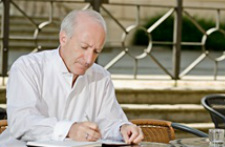


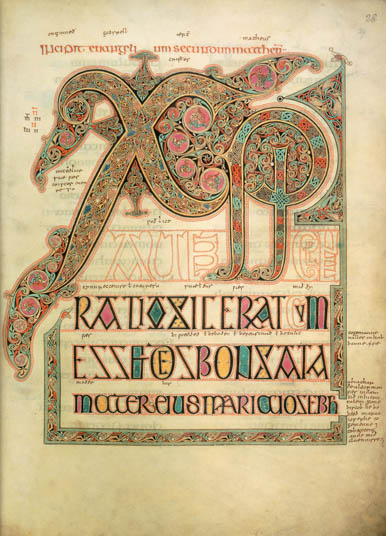
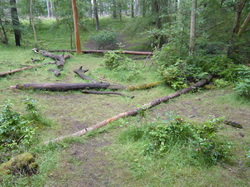
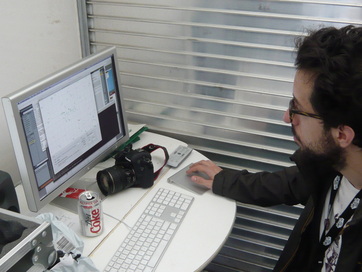
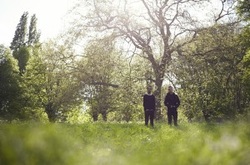
 RSS Feed
RSS Feed
